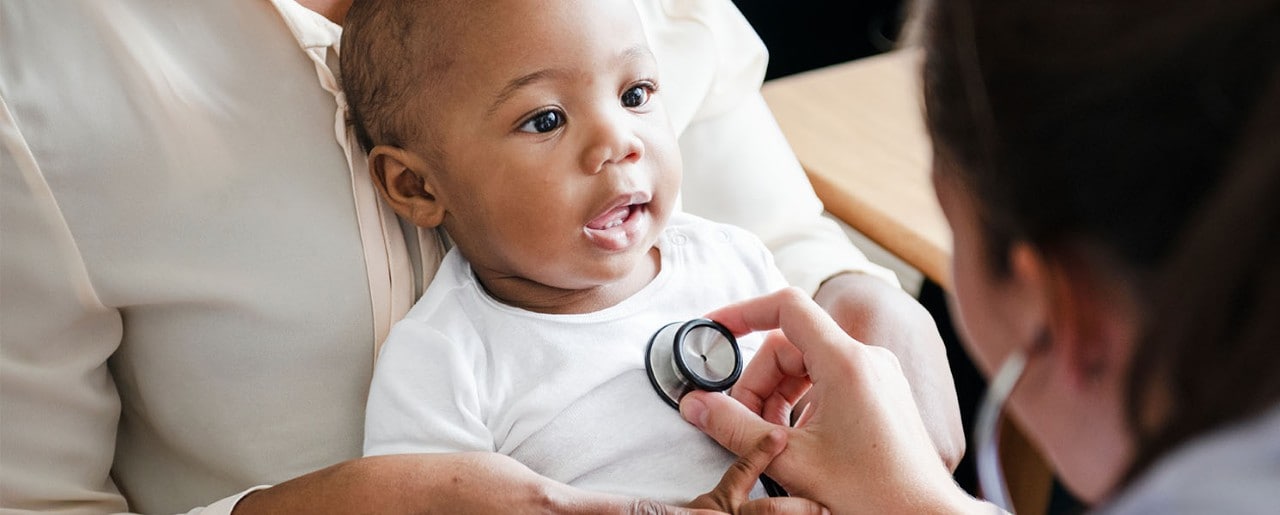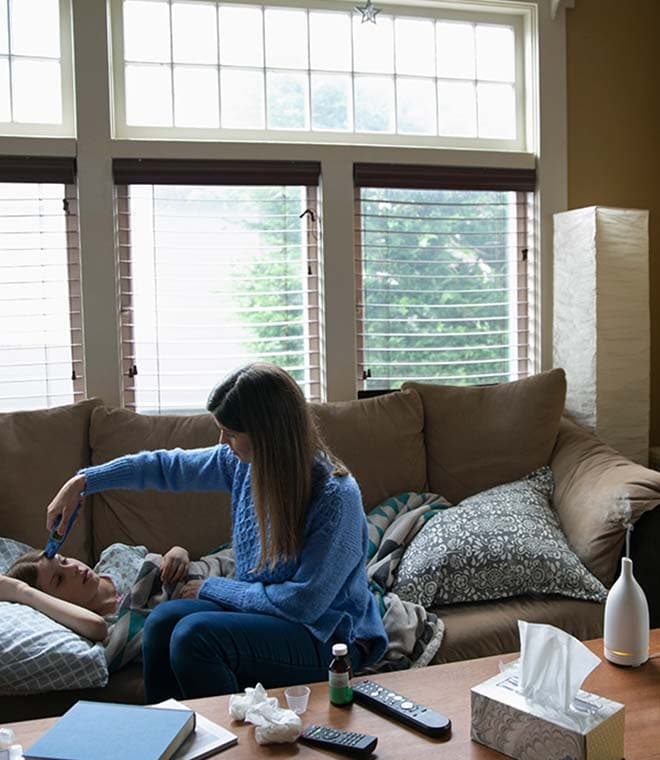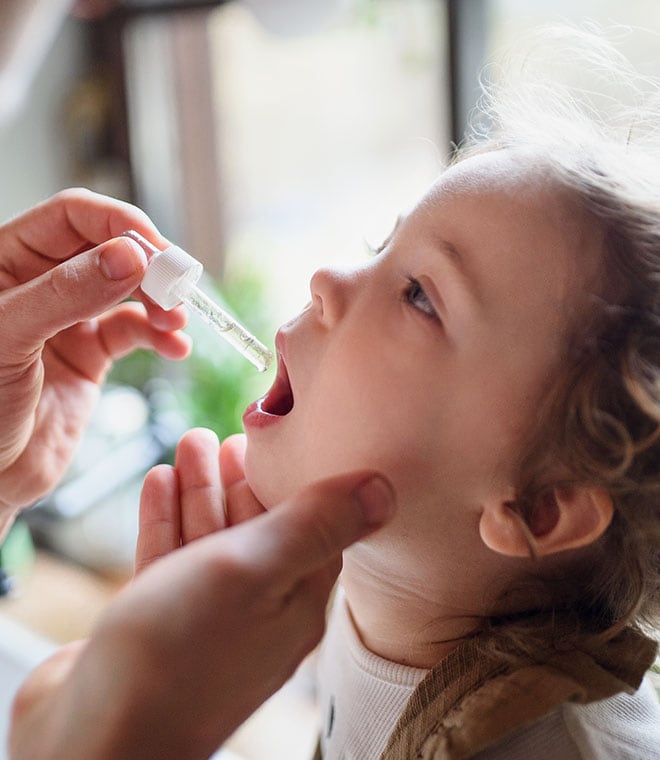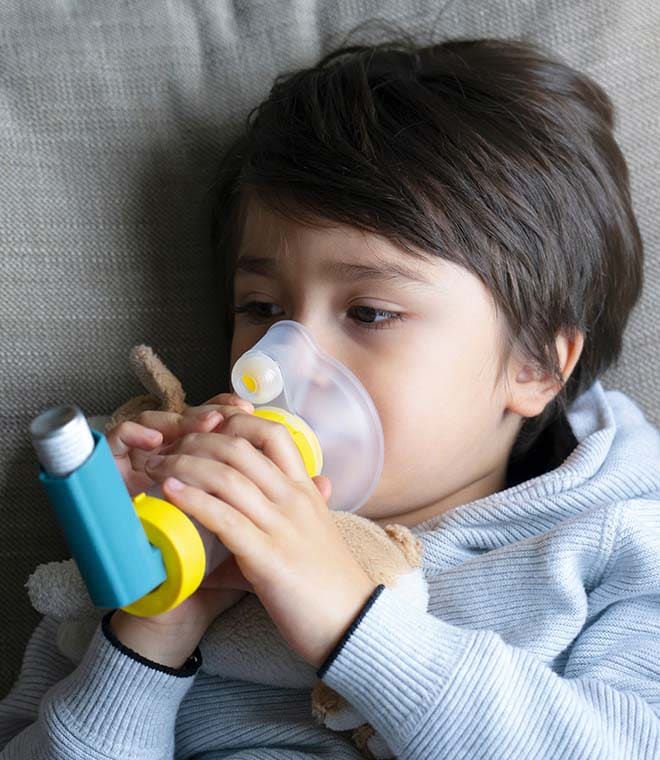Health
RSV: What you need to know
By Loren M. Blinde, PhD Aug 07, 2025 • 5 min
What is RSV?
Although you may not have heard its name before, Respiratory Syncytial Virus (RSV) is a fairly common respiratory virus. For most people, RSV causes mild cold-like symptoms, including a runny nose, decreased appetite, coughing, sneezing, fever and wheezing. Most people recover from an RSV infection on their own within a week or two, but RSV can sometimes be more serious, especially for adults age 50 and older who are at increased risk (and all adults 75 and older) and babies 6 months old or younger.
As of fall 2023, there is now a vaccine available to protect against RSV. Additionally, there are now vaccines and immunizations available to protect infants through maternal vaccination during pregnancy or direct infant immunization.
RSV Prevention for Babies
There are now two important ways to protect babies from severe RSV illness:
- Maternal RSV Vaccine: If you're pregnant, you can get an RSV vaccine (Abrysvo by Pfizer) between 32-36 weeks of pregnancy during September through January. This vaccine helps protect your baby during their first 6 months of life when they're most vulnerable to severe RSV. The vaccine passes antibodies from mother to baby, providing protection from birth.
- Infant RSV Immunization: Babies whose mothers didn't receive the maternal vaccine can get an RSV antibody called nirsevimab (Beyfortus) before or during RSV season. This is recommended for all infants younger than 8 months during their first RSV season.
Most babies don't need both protections - your healthcare provider will help determine which option is best for your family. These new tools have been shown to reduce RSV hospitalizations in infants by 28-43% in the first season they were widely available.
How is RSV different from other respiratory viruses?
Although RSV and other upper respiratory infections can share similar symptoms, RSV more commonly causes more serious infections in the lungs of individuals at risk. These can include bronchiolitis (inflammation of the small airways in the lungs) and pneumonia (infection of the lungs). In fact, RSV is the No. 1 cause of bronchiolitis and pneumonia in babies less than 1 year old.
Symptoms of RSV usually don’t all happen at once; they tend to come on in stages and can get worse over time. Some young children and older adults who have more serious cases of RSV may have trouble breathing and/or may get dehydrated. They may need to spend a few days in the hospital while they recover. That’s why it’s important to know the signs of a more serious infection and when to contact your healthcare provider.
What to watch for in babies and young children
Two warning signs of worsening RSV are trouble with breathing and dehydration. Watch for symptoms that get worse over time. Here are some signs that a baby or young child is having trouble getting enough oxygen:
- Fast breathing
- Nostril flaring
- Head bobbing or grunting while breathing
- Belly breathing
- Chest caving in with each breath
- Bluish or grayish tinge to skin or lips
- Wheezing
If a baby or young child has fewer than one wet diaper in an eight-hour period, it may be a sign of dehydration.
When to call your healthcare provider
If you see any of the above warning signs in your child, contact your child’s healthcare provider right away. For adults who may have RSV, contact your healthcare provider if you’re having trouble breathing, have symptoms of dehydration or feel like your symptoms are getting worse.
Who is at risk of severe RSV
- Adults age 50 and older who are at increased risk of severe RSV disease
- Adults age 75 and older
- Adults who have chronic heart or lung diseases
- Adults who have weakened immune systems
- Babies born premature or with low birth weight
- Very young infants (6 months and younger)
- Children under 2 years old who have chronic lung disease
- Children who have certain heart defects (congenital heart disease)
- Children who have weakened immune systems
- Children who have neuromuscular disorders
You can read more about the RSV vaccine on our site.
Clinically reviewed and updated by Joseph LaPapa, PharmD, August 2025.
Sources:
- https://www.cdc.gov/rsv/about/index.html
- https://www.cdc.gov/rsv/symptoms/index.html
- https://www.healthychildren.org/English/health-issues/conditions/chest-lungs/Pages/RSV-When-Its-More-Than-Just-a-Cold.aspx
- https://www.cdc.gov/rsv/adults/index.html
- https://www.cdc.gov/rsv/vaccines/protect-infants.html
- https://www.cdc.gov/rsv/hcp/vaccine-clinical-guidance/pregnant-people.html
- https://www.cdc.gov/rsv/vaccines/adults.html
- https://www.cdc.gov/rsv/infants-young-children/index.html




